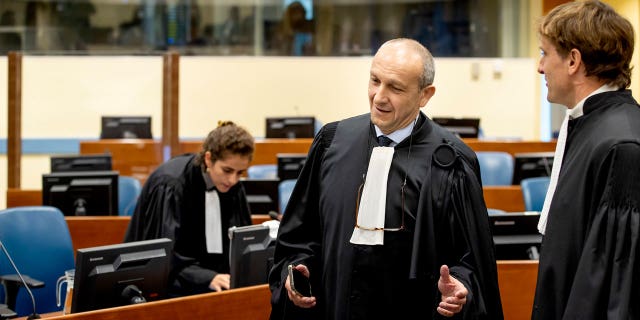Judges of the International Residual Mechanism for Criminal Tribunals have ruled that Félicien Kabuga, an 88-year-old Rwandan genocide suspect, cannot continue standing trial due to his dementia. However, the judges have stated that they will establish a procedure to continue hearing evidence without the possibility of convicting Kabuga. The majority decision, published on Wednesday, means that no guilty verdict will be reached in Kabuga’s trial, making him one of the last fugitives charged in connection with the 1994 genocide. Kabuga is accused of encouraging and financing the mass killing of Rwanda’s Tutsi minority.
The trial began last year, almost three decades after the killing of 800,000 people in a 100-day massacre. Kabuga is being held in custody at a U.N. detention unit in The Hague and will not be released for now despite the court’s ruling. The decision has disappointed many Rwandans, including genocide survivor Yolande Mukakasana who stated that the judges who deem Kabuga unfit to stand trial should be tried themselves. Justin Karangwa, another genocide survivor and a teacher, said that the crime of genocide needs severe punishment.
Medical experts who have been closely monitoring Kabuga’s health said that his dementia prevents him from meaningfully participating in a trial and that his condition will not improve. In a written decision, the judges outlined an alternative finding procedure that will resemble a trial as closely as possible, but without the possibility of a conviction.

Felicien Kabuga’s defense lawyer Emmanuel Altit, left, speaks with prosecutor Rupert Elderkin in court at the UN International Residual Mechanism for Criminal Tribunals (IRMCT) in The Hague, on Sept. 29 2022. (Koen van Weel/Pool Photo via AP, file)
Kabuga faced charges of genocide, incitement to commit genocide, conspiracy to commit genocide, as well as persecution, extermination, and murder. He pleaded not guilty and, if convicted, would have faced a maximum sentence of life imprisonment. At the opening of his trial in September, prosecution lawyer Rashid Rashid described Kabuga as an enthusiastic supporter of the Tutsi slaughter, who armed, trained, and encouraged murderous Hutu militias known as Interahamwe.
The genocide was triggered on April 6, 1994, when a plane carrying President Juvénal Habyarimana was shot down and crashed in the capital, Kigali, killing the leader, who like the majority of Rwandans, was an ethnic Hutu. Kabuga’s daughter married Habyarimana’s son. The Tutsi minority was blamed for downing the plane, and Hutu extremists began slaughtering Tutsis and their perceived supporters, with help from the army, police, and militias. After years as a fugitive from international justice, Kabuga, who had a $5 million bounty on his head, was arrested outside Paris in May 2020. He was transferred to The Hague to stand trial at the residual mechanism, a court that deals with remaining cases from the now-closed U.N. tribunals for Rwanda and the Balkan wars.
The decision in Kabuga’s case came about two weeks after Fulgence Kayishema, one of the most wanted suspects in Rwanda’s genocide, was arrested in South Africa after being on the run for 22 years. Kayishema is suspected of orchestrating the killing of more than 2,000 people at a church nearly three decades ago.


